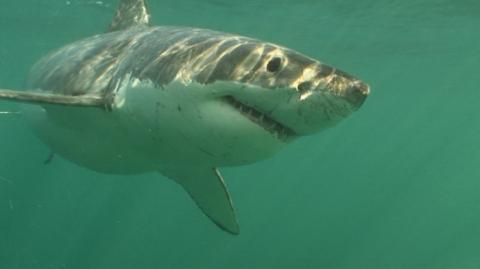
Sharks strike fear into the heart of swimmers but there were only six fatalaties worldwide in 2015.
Hysteria about shark attacks bears little relation to the actual risk. Worldwide, there were 98 unprovoked shark attacks last year.
That number was the highest on record, according to the International Shark Attack File, the world's most authoritative source on the phenomenon.
But the record high number does not necessarily mean an increase in the rate of shark attacks. Instead it probably reflects increases in the numbers of humans, and the amount of time they are spending in the sea. If anything, the rate of attack is likely to be declining.
In any case we shouldn't take too much notice of year-on-year variations in shark attack numbers, says George Burgess, curator of the IASF, because the number of humans and sharks together in the water in any one year changes significantly according to weather, ocean and soci-economic conditions.
Out of 98 unprovoked* attacks, there were only only six fatalities. That is a 6.1 per cent fatality rate, which matches the annual average of the previous decade and is "remarkably low" given the billions of human-hours spent in the water each year. But the long term trend over the past century has been for a reduction in fatality rates as beach safety and medical capacity improve along with the public's understanding of how to avoid dangerous situations.
To learn more about shark fatality realities, click here.
